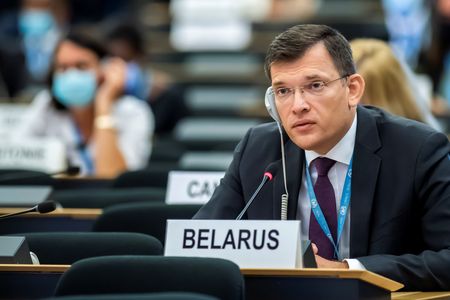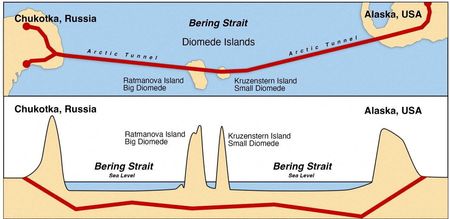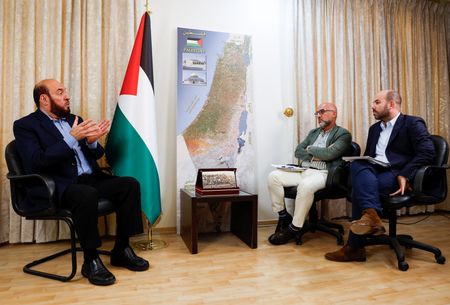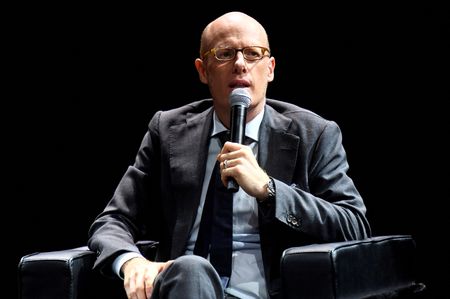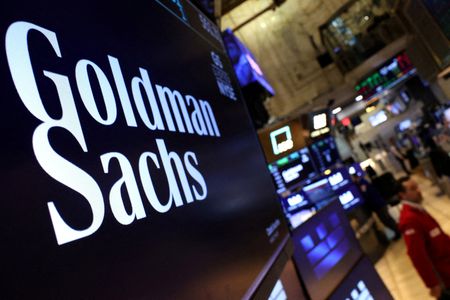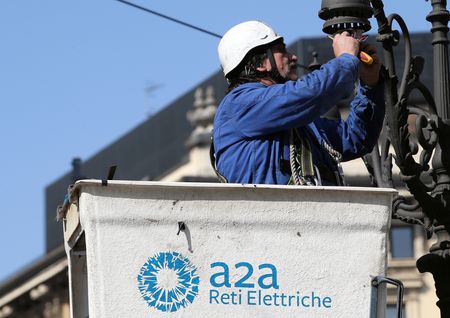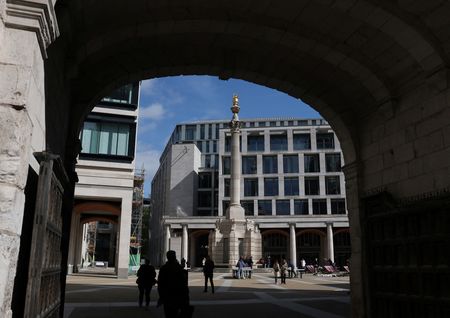By John Irish
PARIS (Reuters) -A senior Belarusian diplomat has held meetings with Europeans after his country sent out invitations last month, in what European diplomats called an overture to reduce Minsk’s isolation after a thaw with Washington under Donald Trump.
Senior officials from Belarus have largely been persona non grata in the EU since Europe imposed sanctions in the wake of a sweeping crackdown on opposition protests following a disputed election in 2020. Sanctions have been tightened repeatedly since Minsk backed Russia’s invasion of Ukraine in 2022.
But at least one European diplomat said he had had a recent meeting with Yuri Ambrazevich, a former deputy foreign minister of Belarus, posted in March to Rome as Minsk’s ambassador to the Vatican and tasked with reaching out to European countries.
DIPLOMAT ‘INFORMALLY RESPONSIBLE FOR COORDINATING CONTACTS’
Ambrazevich sought to pass on a message that Belarus was seeking to break its political isolation, and could play roles in finding a negotiated solution between Russia and Ukraine and in future talks on European security, the diplomat said.
The Belarusian embassy in Paris, where Ambrazevich is also accredited as envoy to the U.N. cultural body UNESCO, sent an emailed invitation at the end of September to a number of European countries’ missions inviting diplomats to meet him.
The email, a copy of which was reviewed by Reuters, said Ambrazevich was “now informally responsible for coordinating Belarusian diplomatic contacts in the capitals of Western Europe” and requested meetings in Paris on October 6, 8 or 9.
The Belarusian embassy told Reuters Ambrazevich had “requested several meetings with his fellow ambassadors accredited to France, in accordance with standard diplomatic practice”.
Three other European diplomats confirmed their countries had received the invitations, and that some countries had agreed to meet Ambrazevich. The diplomats spoke on condition of anonymity. Reuters could not independently determine how many countries had received the invitations or which had accepted them.
“I think they feel there is a window that’s now opened with Trump to get their sanctions dropped so they are seizing it,” said one of the diplomats.
THAW WITH TRUMP
Belarusian President Alexander Lukashenko, a close ally of Russian President Vladimir Putin, has been isolated for years by Western sanctions. But since Trump took office and reached out to Moscow, Washington has increased engagement with Belarus, sending multiple delegations to Minsk this year.
In recent weeks Trump has phoned Lukashenko, praising him as a “highly respected” leader. He sent an envoy to Belarus for talks that led to the freeing of more than 50 political prisoners in mid-September. In return, Washington eased sanctions on Minsk’s state airline Belavia to give it access to spare parts.
CHARM OFFENSIVE MET WITH SCEPTICISM
Two of the diplomats described the outreach to Europeans as a charm offensive that sought to take advantage of Trump’s rapprochement and demonstrate that Minsk was not completely beholden to Moscow.
“They say they don’t want escalation of the conflict so what they want now is to have an open line of discussion with other states and to underline their differences from Russia,” said one.
U.S. officials say the Trump administration hopes to draw Belarus out of Moscow’s geopolitical orbit, even if only to a degree. But some Europeans see this as unlikely, given Lukashenko’s heavy dependence – politically, economically and militarily – on his much larger neighbour.
One of the European diplomats who confirmed the invitation to meet Ambrazevich viewed the move sceptically, noting Lukashenko’s continued support for Putin. The diplomat said Belarus had arrested more opposition figures immediately after the release of the prisoners in September.
Minsk and Moscow held joint military exercises in September, and Lukashenko proposed building a nuclear power station in eastern Belarus that could provide electricity to Russian-controlled parts of Ukraine.
Sviatlana Tsikhanouskaya, leader of the exiled Belarusian opposition, voiced unease about the lifting of U.S. sanctions on Belavia and urged the EU to keep sanctions in place “until there are systemic and irreversible democratic changes in Belarus”.
A major goal for Lukashenko would be easing sanctions on potash fertiliser from Belarus, its sole world-leading product, and the restoration of the landlocked country’s access to Baltic ports to ship it. But the exiled Belarusian opposition, which has the backing of Baltic EU member states, has strongly opposed any such move.
“I don’t see, for now, Lithuanians or Latvians’ readiness to lift those sanctions from Lukashenko,” said Pavel Slunkin, a former Belarusian diplomat now living outside the country.
(Additional reporting by Mark TrevelyanEditing by Peter Graff)

